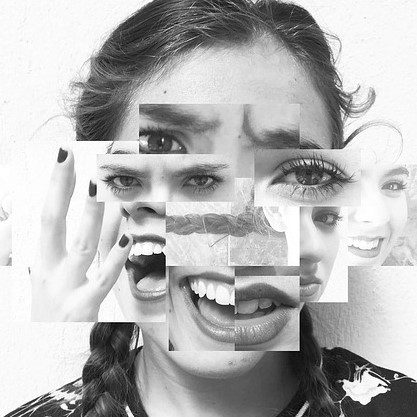Living with bipolar disorder is a dance between extremes. It’s a rollercoaster ride of highs and lows, where the peaks and valleys can be both exhilarating and exhausting. Each day brings uncertainty—and you never know if the next turn will lead to soaring elation or plunging despair.
About 5.7 million adult Americans, or roughly 2.6% of the U.S. population, suffer from bipolar disorder. The average age of diagnosis is 25, but many people are diagnosed in their 30s and 40s after struggling with their mental health for several years. Many are initially diagnosed with depression because they first sought care during a depressive episode.
According to the Substance Abuse Mental Health Services Administration, up to 50% of people with bipolar disorder will meet the diagnostic criteria for a substance use disorder at some point during their lives. Suffering from a substance use disorder and a co-occurring mental health condition like bipolar disorder presents challenges, but it’s important to know that help is available. Evidence-based care programs like those at Waypoint Recovery Center’s South Carolina drug and alcohol addiction treatment facility can help you build the foundation for a lasting recovery and improved mental health.
How Substance Abuse Affects People With Bipolar Disorder
The symptoms of bipolar disorder include alternating episodes of mania and depression.
Symptoms of mania can include:
- Elevated or irritable mood
- Increased energy and restlessness
- Racing thoughts and rapid speech
- Decreased need for sleep
- Grandiose or inflated self-esteem
- Impulsive behavior and poor judgment
- Engaging in risky activities (excessive spending, substance abuse, reckless driving, etc.)
- Difficulty concentrating or staying focused
- Increased sexual desire or promiscuity
Symptoms of depression can include:
- Persistent feelings of sadness, emptiness, or hopelessness
- Loss of interest or pleasure in activities once enjoyed
- Significant changes in appetite and weight
- Disturbed sleep patterns
- Fatigue or loss of energy
- Restlessness or slowed movements
- Difficulty concentrating, making decisions, or remembering things
- Feelings of guilt or worthlessness
- Recurrent thoughts of death, suicide, or self-harm
No two people experience bipolar disorder in the same way, so the presence and severity of these symptoms can vary from person to person. Some people may even experience mixed episodes with features of both mania and depression simultaneously. It is also possible for people with bipolar disorder to experience periods of a balanced mood even without medication.
Generally speaking, long-term substance abuse worsens the symptoms of bipolar disorder. Drugs and alcohol can disrupt mood stability, triggering or intensifying manic or depressive episodes. This can lead to more frequent and severe mood swings.
Additionally, impaired judgment and increased impulsivity, which are already common symptoms of bipolar disorder during manic episodes, can be increased by substance abuse. This can lead to an increase in risky behaviors, such as excessive spending or engaging in unprotected sex.
Alcohol is the most commonly misused substance among people with bipolar disorder. These individuals are less likely to adhere to treatment and more likely to attempt suicide.
Getting the Help You Need to Move Towards a Brighter Future
It is crucial for people with bipolar disorder to seek help for both their bipolar symptoms and substance abuse issues. Treatment plans should be personalized to fit individual needs but may include the following:
- Initial assessment. A thorough assessment is essential to evaluate a person’s specific needs, symptoms, and the relationship between bipolar disorder and substance use.
- Medication management. Medications may be prescribed to manage symptoms of bipolar disorder and support recovery from substance use. Mood stabilizers, antidepressants, or antipsychotic medications can help stabilize mood, reduce cravings, and manage withdrawal symptoms.
- Psychotherapy. Cognitive-behavioral therapy (CBT) helps identify and modify unhealthy thought patterns and behaviors related to both bipolar disorder and substance abuse. Motivational interviewing and contingency management are also effective approaches.
- Relapse prevention. This includes learning coping skills and developing a personalized relapse prevention plan to address both the triggers related to bipolar disorder and those specific to substance use.
- Family involvement. Family therapy and education about what it means to have a dual diagnosis can help create a supportive environment that aids in the recovery process.
- Ongoing care and monitoring. Regular check-ins with healthcare professionals, therapy sessions, and participation in support groups can help sustain recovery and address any emerging issues before they lead to a relapse.
With access to proper treatment, people with bipolar disorder can find the balance and stability they deserve—harnessing their unique perspective to create art, pursue passions, and build meaningful connections. Contact us today to learn more about how Waypoint Recovery Center’s treatment services can help you take the first steps on your recovery journey.





